
A California early-stage career programme, which emphasises diverse skills, views, exposure and people, is producing some of the industry’s foremost leaders. By James Workman
Careers, like rivers, never flow fast in a straight line from source to mouth. Occasionally, they even jump banks and head off in a new direction.
The benefits of such changes were first promoted twenty years ago by California’s leading facilitation and outreach nonprofit, the Water Education Foundation, (WEF) that believed that leaders in the water profession could be more effective if they could escape the confines of a single channel and take an active, cooperative approach to decision- making about water resource issues.
At that time, WEF set up a unique one-year programme for twenty up-and-coming, early to mid-career professionals, exposing them to a range of perspectives from often opposing sides in the water world, and linking them with mentors, often from different sectors.
The William R. Gianelli Water Leaders Class was founded by the late Jean Auer, a prominent player in California’s water battles over the past three decades and the first female member of the powerful state water board. By 1997, California’s thirst for water leaders was as strong as its need for water itself, but Auer recognised that many young professionals were focused too much on a small slice of what they worked on. The idea was to broaden the horizons of what is too often a narrowly constricted view of water.
“People in the water world know they need to think outside their corner,” says Jennifer Bowles, who has run the programme for more than three years. “But they don’t often get that opportunity in their day-to- day lives. This programme offered a chance to break the mould.”
The year-long programme presents a demanding opportunity for water professionals to deepen their knowledge on California water issues and dedicate time to going on tours of key water regions. Perhaps most difficult of all, participants must learn to speak with each other and understand the varying perspectives of their classmates.
The challenges arise when they realise they still have to overcome the preconceived notions of farmers, environmentalists, or other stakeholders. Graduates have remarked how it quite literally changed their lives, made their work more impactful, and shifted the direction and focal area of their interests. The programme has become a model that other regions are trying to replicate, a fair indicator of success.
Now, on its 20th anniversary, we have invited former cohorts to describe their journey and offer advice.
Scientist and engineer Mark Tompkins (class of 2000) broke off from his consultancy with CH2M Hill to found his own firm, FlowWest, with two other WEF alumni, Mike Urkov (1999) and Paul Frank (2010). He learned that water problems are “not going to be solved by the expertise of any one person or any one discipline. You have to be ready to communicate technical work to a group of people who come from a broad background outside your narrow discipline or specialty.”
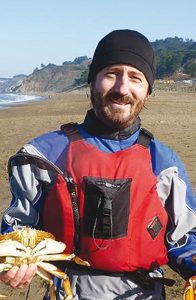
In 2011, Newsha Ajami was an urban-raised water wonk at the Council on Science & Technology. Paired with an agricultural mentor, she “learned about farming and its relationship with water and land conservation. I also learned that people look at water from their own perspective.” Now Director of Urban Water Policy at Stanford’s Water in the West programme, she advocates for multidimensional solutions that “won’t happen unless you have a broad engagement with a variety of stakeholders. Consensus is not easy to reach and it may not be a beautiful process, but it is the best path forward if you spend the time and energy.”
People in the water world know they need to think outside their corner,” says Jennifer Bowles. “But they don’t often get that opportunity in their day-to-day lives. This programme offered a chance to break the mould”
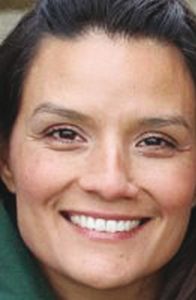
Martha Guzman Aceves was California Governor Jerry Brown’s Deputy Legislative Affairs Secretary, and before that, Legislative Coordinator for United Farm Workers. Recently appointed to the Public Utilities Commission for the state, she knows water management “is only going to get harder. We’re going to have less snow, we’re going to have to break the old paradigm, and we can do that without displacing how our economies are based.” Young water professionals offer fresh minds. “No pressure, they just have to save the world.”
Chris Scheuring, at the California Farm Bureau Federation, was mentored by a liberal urban conservationist who “opened up my mind to the differences in perceptions, from coast to inland, urban to rural.” His advice: while “it can feel overwhelming, arcane and hard to understand,” if you “look at water from a landscape level it’s always informed by scarcity, which makes it fascinating. And be sure to start with your integrity and don’t ever lose it.”
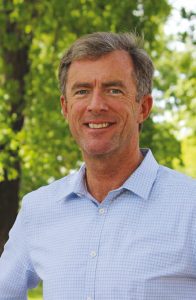
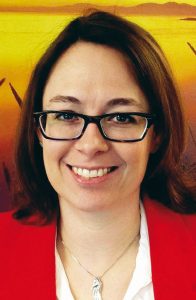
Jessica Pearson, Executive Officer of the Delta Stewardship Program, advises: “You never know who you’re going to work for. The biggest mistake you can make in water policy is assuming that you understand the perspectives of people who you haven’t yet sat down with and really listened to.”
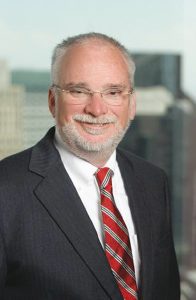
Scott A. Morris, broadened his focus to become a general counsel to several public water agencies. Asa shareholder at Kronic Moskovitz Tiedemann & Girard he advises young water professionals to seek competing viewpoints: “Water is a very scarce, precious resource that all interests need, so despite the battles that need to be fought, there is far more common ground than people realise.”
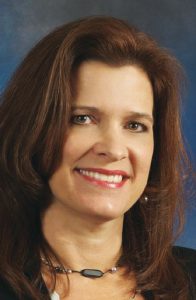
Tina Shields, 2001, now oversees a staff of 450 who manage and deliver Imperial Irrigation District’s annual 3.1 million acre-feet of Colorado River. Shields was paired with Mary Ann Dickenson, whose conservation perspectives were focused on larger- scale, smaller (per unit) urban conservation measures, “while I had dealt only with the larger volume agricultural programmes.” Given the “relatively small community of water professionals”, she urges cultivating relationships to provide you with assistance, insight and opportunities over time.
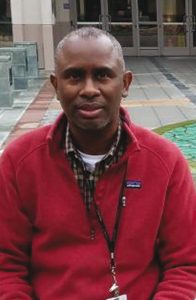
Some early graduates are now in senior roles that would make them valued mentors to others. For example Edgar G Dymally, class of 1997, is Senior Environmental Specialist at the Metropolitan Water District, and his classmate Denise Kruger is Senior Vice President of Golden State Water Company.







